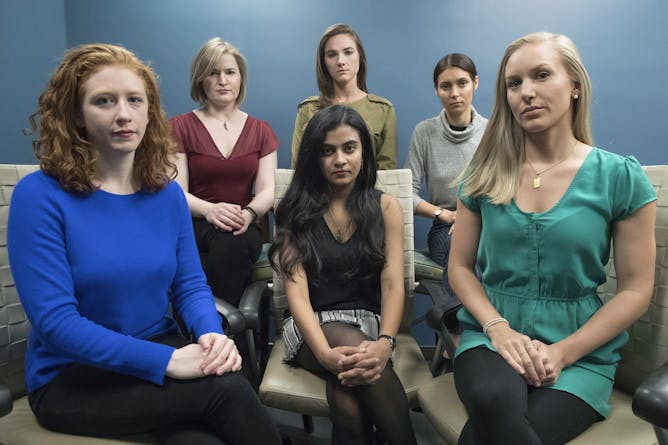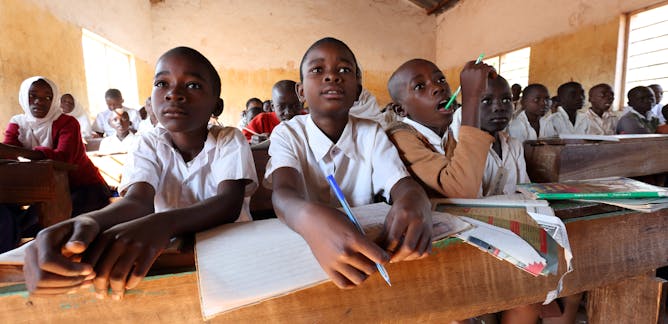|
The spreading of false information, a phenomenon known as “fake news”, has an unsavoury history. Until now, it’s been studied mostly in the US and Europe, with very little attention in Africa despite its widespread use on the continent. A new study by Herman Wasserman and Dani Madrid-Morales shows that the spread of false information – through disinformation and misinformation – is so widespread in Africa that it has eroded trust in the media.
And Lucia O'Sullivan unpacks a very important topic: how a different type of research is needed when it comes to understanding sexual violence against women. Traditionally, research has focused on the experience of the victims. But to gain better knowledge, it’s time to start learning more about the men who commit the assaults.
|

Nigerians have the lowest trust in the country’s media, thanks to widespread misinformation.
EPA/Ahmed Jallanzo
Herman Wasserman, University of Cape Town; Dani Madrid-Morales, University of Houston
Disinformation in Africa often takes the form of extreme speech inciting violence and spreading racist, misogynous, xenophobic messages.
|

This Nov. 14, 2018 photo shows six women who have filed a lawsuit against Dartmouth College in New Hampshire for allegedly allowing three professors to create a culture in their department that encouraged drunken parties and subjected female graduate students to harassment, groping and sexual assault.
(AP Photo/Mary Altaffer)
Lucia O'Sullivan, University of New Brunswick
It's time to stop surveying women about their experiences as rape victims, time to research the men who perpetrate these crimes and work to inebriate and isolate women.
|
Politics + Society
|
-
Evie Browne, University of Sussex
Changes that protect or increase human rights should always be welcomed – but we should check motives, too.
|
|
Environment + Energy
|
-
Christian Dunn, Bangor University
Mangrove forests grow in the tidal lagoons of tropical coastlines and they could actually benefit from climate change. Here's what that means for us.
|
|
Arts + Culture
|

Bayu Mitra A. Kusuma, Universitas Islam Negeri Sunan Kalijaga
Indonesia can also apply strategies implemented by the Philippine government to counteract terrorism and radicalism.
| |

Charlotte Baker, Lancaster University
The needs of children with albinism aren't met in the classroom and this often leads to them dropping out of school.
|
|
|